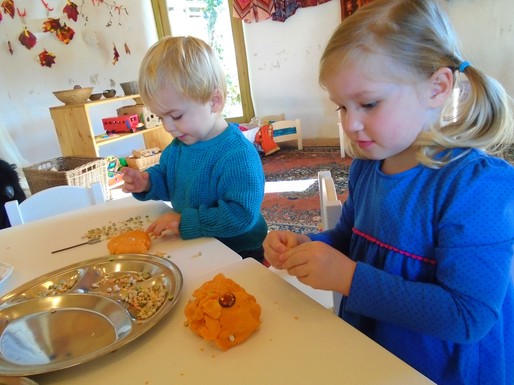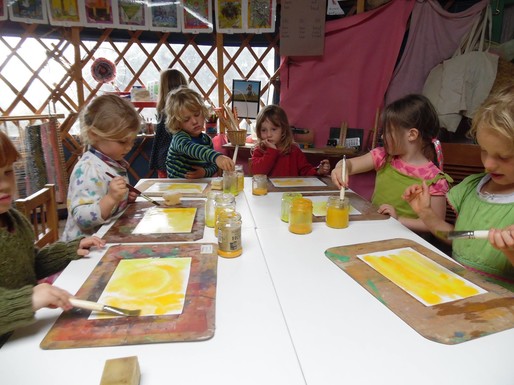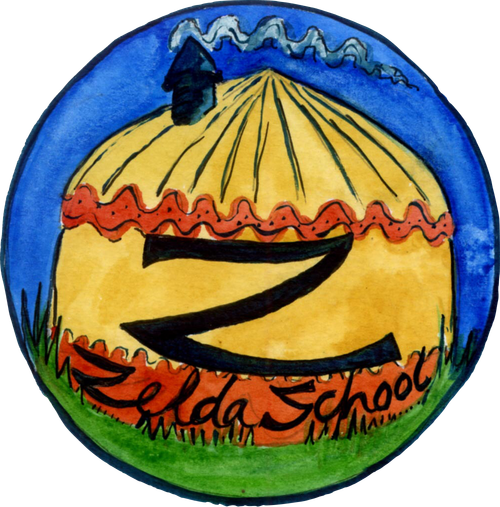At Zelda School we have developed a unique and continuously evolving curriculum. We specialise in taking all aspects of learning outdoors, and our curriculum and teaching methods encourage children to develop a love of learning through their own creativity and resourcefulness.
Within this unique approach, we believe it is important to still work closely with the National Curriculum: for our pupils who will join mainstream education at some point in the future, and for parents who want to be able to gauge where their children are academically in relation to their peers.
All areas of the curriculum and teaching methods are child-led, which means that children engage in an activity when they want to, and in a way that suits their learning style. There is no testing and, in our experience, all children are ambitious and seek challenge when learning in a style that is best suited to their strengths and potential.
Forest school activities are present throughout the school day, and most weeks will involve a whole morning in nearby woods expanding on these skills.
Rich story-telling and verse are also present every day, as are art and craft. Crafts are often focussed around the season and making for the festivals, for example lanterns for the Lantern Walk festival. We work with wool and felt, wax, papercraft, wood and natural watercolours. In Upper Kindergarten children learn to knit.
Music is ever-present in verse and song, and in Upper Kindergarten children learn the pentatonic flute.
As well as celebrating in all the festivals, we also perform a summer show at the end of each year, for which all the children explore their performance skills and confidence.

Lower Kindergarten
In Lower Kindergarten, children learn through self-directed play. Play IS learning. Through play, children develop the vital social, negotiating and problem-solving skills that will underpin all of their future learning, schooling and working lives. Through play, they also fully engage their creativity and imagination, which again supports all future learning.
Zelda School children develop attention for how they can learn from the natural environment around them, through seasonal changes, and through growing, preparing and cooking food and looking after their outdoor space.
Our teachers are skilled at noticing learning opportunities and weaving them into the games and role-plays that naturally arise, and use obstacles as opportunities for problem-solving and analytical thinking.
We follow the EYFS curriculum for children up to the end of their reception year, with the exception of the technology area. We do not have any computers or screens of any kind at Zelda School, which we see as a benefit. We satisfy Ofsted’s requirements by teaching technology in many other ways: with tools, batteries and torches, simple circuits, engineering, pulleys/levers and much more.
Moving from Lower to Upper Kindergarten
Children move to Upper Kindergarten when they start to show a readiness for a more focussed style of learning, for example showing an interest in reading and writing. The teachers will also look for the level of coordination that is a prerequisite for comfortable writing, and the ability to sustain concentration.

Upper Kindergarten
The Upper Kindergarten curriculum expands into more focussed learning.
English
Every day the children practice letter sounds, and start to engage with writing and reading at an appropriate level for them. This may include movement, voicework and games. Creative writing is very strongly encouraged, with a focus on language and imagination over correct spelling and punctuation, which can be refined later.
Mathematics
This is generally taught through real-life experiences and scenarios like cooking, measuring and problem-solving. At least one week of every half-term is focused on number.
History, Geography, Science
All other subjects are taught through project-based work. The children collectively decide on what the topics will be, and take a central role in directing the learning themselves.
For more details of how the school day is structured please see ‘Our school day’ section.
The main component of the Ofsted regulations are Ofsted regulations are (1) the Early Years Foundation Stage Statutory Requirements, which also sets out safety guidelines and (2) Development Matters, which gives advice about what children should be learning at various stages of their development. In September 2017 a revised version of the document was published. You can download it here.
If you have any questions or would like to know more about the curriculum, please make an appointment to see Zelda or Jackie, who would be very happy to discuss it further with you.
